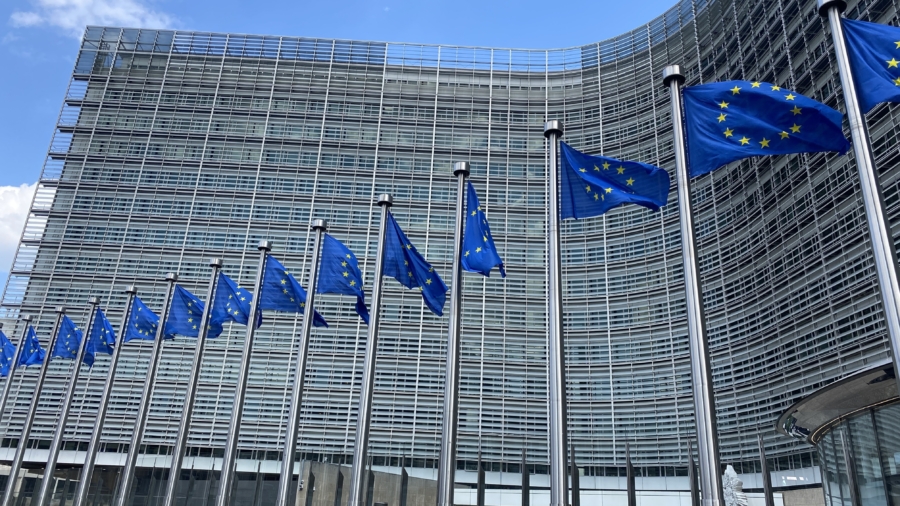
DORA in the EU: What you need to know
Learn about the EU's new Digital Operational Resilience Act (DORA) and its significant impact on financial institutions and information and communications technology (ICT) service providers.

The world of finance runs on digital infrastructure, but that infrastructure is under constant threat from cyberattacks, system failures, and technological disruptions. Enter the Digital Operational Resilience Act (DORA) – the European Union’s attempt to make financial systems more resilient to digital shocks. DORA seeks to ensure that banks, investment firms, insurers, and even crypto companies don’t crumble when technology falters. In this blog, we will explore what DORA is, what it means for legal teams, and how to ensure that new and existing contracts comply with the act.
What is the Digital Operational Resilience Act (DORA)?
According to the European Insurance and Occupational Pensions Authority (EIPOA), DORA is an EU regulation that went into effect as of January 17, 2025. Think of it as a playbook for surviving digital disasters for those operating in the financial industry. DORA mandates that financial institutions in Europe, including critical third-party providers, can “stay resilient in the event of a severe operational disruption” from information and communication technology (ICT) incidents.
The framework of DORA contains several aspects:
- ICT risk management – DORA provides a set of principles and requirements on ICT risk management to actively identify and mitigate risks.
- ICT third-party risk management – The Act requires organizations to monitor third-party risk providers such as financial firms relying on outside tech providers, from cloud storage to analytics platforms, and provides key contractual provisions.
- Digital operational resilience testing – Organizations must regularly run basic and advanced resilience testing to spot vulnerabilities before bad actors do.
- ICT-related incidents – In the case of an incident, organizations must adhere to a standardized reporting structure and provide those to competent authorities.
- Information sharing – The act encourages the financial sector to collaborate on cyber threats and proactive information sharing.
- Oversight of critical third-party providers – DORA requires tighter control over these dependencies and provides an oversight mechanism for these providers.
Why now?
The financial sector has been a prime target for cybercriminals, with attacks growing in scale as well as becoming more sophisticated. Hackers aren’t just looking for quick cash – they’re going after sensitive data, disrupting critical operations, violating privacy regulations, and even targeting third-party vendors to infiltrate entire networks.
In the past two decades, nearly one-fifth of reported cyber incidents have affected the global financial sector, causing $12 billion in direct losses to financial firms, according to the IMF’s Global Financial Stability Report. Since 2020, direct losses amounted to an estimated $2.5 billion, according to the World Economic Forum.
EU regulators saw the writing on the wall: without a standardized, enforceable approach to digital resilience for financial institutions, the entire ecosystem would be at risk. DORA is the EU’s way of saying: “failing to prepare is preparing to fail.”
What DORA means for legal teams
Legal teams play a critical role in ensuring compliance for their organizations, as DORA mandates contractual accountability with third-party vendors, incident reporting obligations, and increased regulatory obligations.
With DORA, legal and contracting teams must take a proactive approach to risk management by:
- Reviewing and updating third-party contracts to ensure compliance with DORA’s requirements
- Implementing robust incident response plans that align with regulatory reporting standards
- Advising leadership on liability, potential fines and reputational damage, and resources
Legal teams that embrace these responsibilities will help organizations maintain compliance with DORA.
How legal tech can help with DORA compliance
Given the complexity of DORA, relying on manual processes for compliance is time-consuming and costly. Legal technology solutions can help legal teams automate and streamline contract compliance, risk management, and agree on contracts faster. Tools like Contract Lifecycle Management (CLM) platforms can:
- Ensure contracts meet DORA requirements – All contracts can be found with a single source of truth that aligns everyone in achieving common goals.
- Track compliance deadlines – A data-first platform can provide flexibility and accessibility to important contract data.
- Quick access to critical contract information – All contracts can be easily found and configured to the perfect processes without ever hiring a programmer.
- Streamline the entire contracting process – Users can get the most from each contract from the moment it’s created, through negotiation and close.
- Monitor and comply with various international regulations – Aside from DORA, the EU has several other regulations in place, such as the EU AI Act.
When it comes to new regulations, legal tech can help organizations quickly access the right contracts and agreements at their fingertips. The ability to instantly retrieve key contractual obligations within a contract can be the difference between a smooth resolution and a regulatory nightmare. In other words, leveraging the right technology partner for CLM makes DORA compliance easier, smarter, and more efficient.
The bottom line
DORA represents a fundamental shift in how financial firms manage digital risk, especially in the age of artificial intelligence and increasing cyber-attacks. Now that DORA is officially in effect, financial institutions based in Europe must act right away, and leveraging a CLM platform is the key to staying ahead.
To learn more about Agiloft’s Data-first Agreement Platform and how it can help you agree and thrive, visit https://www.agiloft.com/lets-talk/.
Recent
Posts
Learn about the realities of AI today, its limitations and capabilities, and its use as a “force multiplier” for contracting.
If there is one message for tech buyers as we approach 2024, it is that AI is here – ready or not.
With the introduction of ConvoAI, Agiloft delivers the same benefits of simplified AI experiences to the world of contracts.





